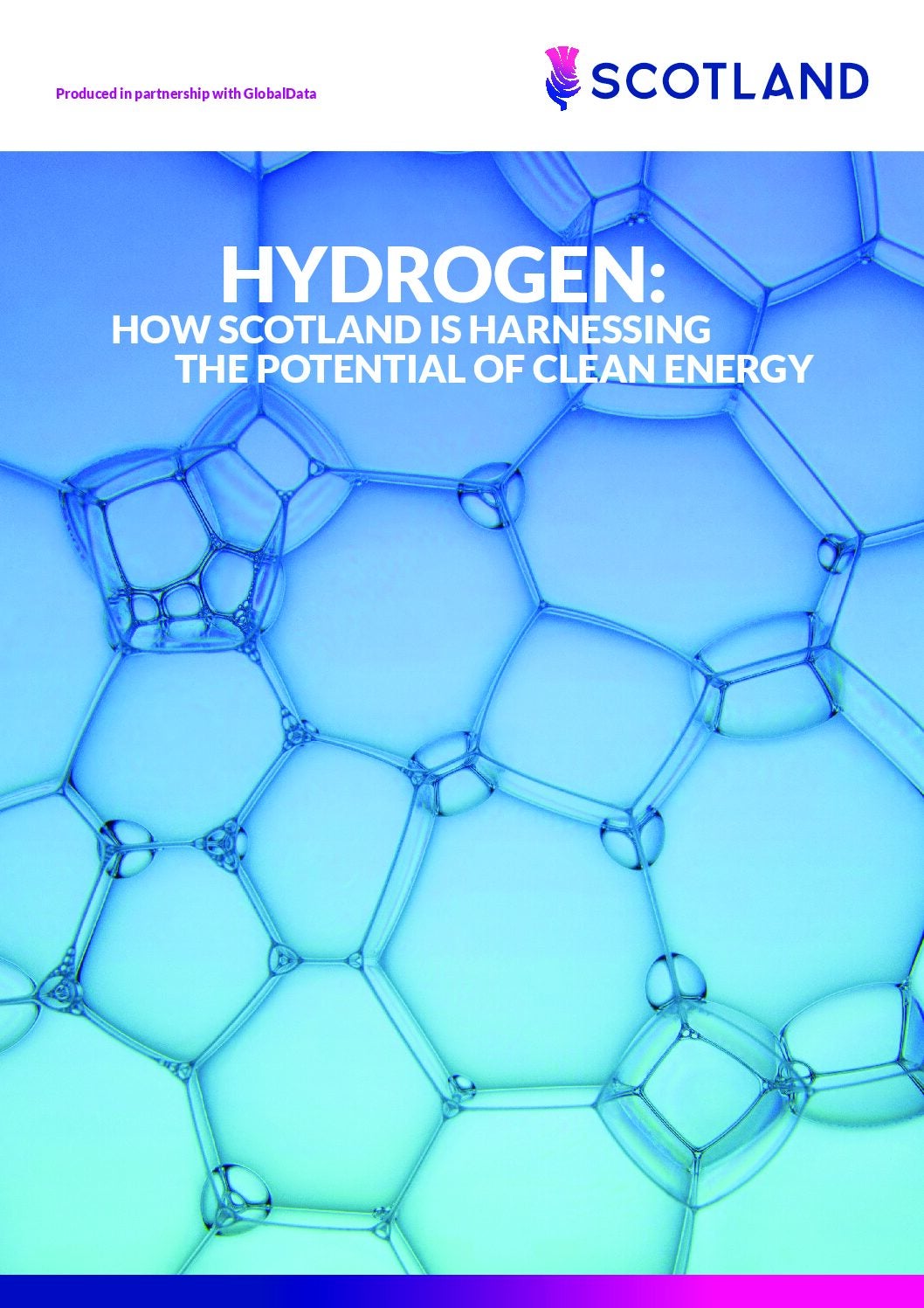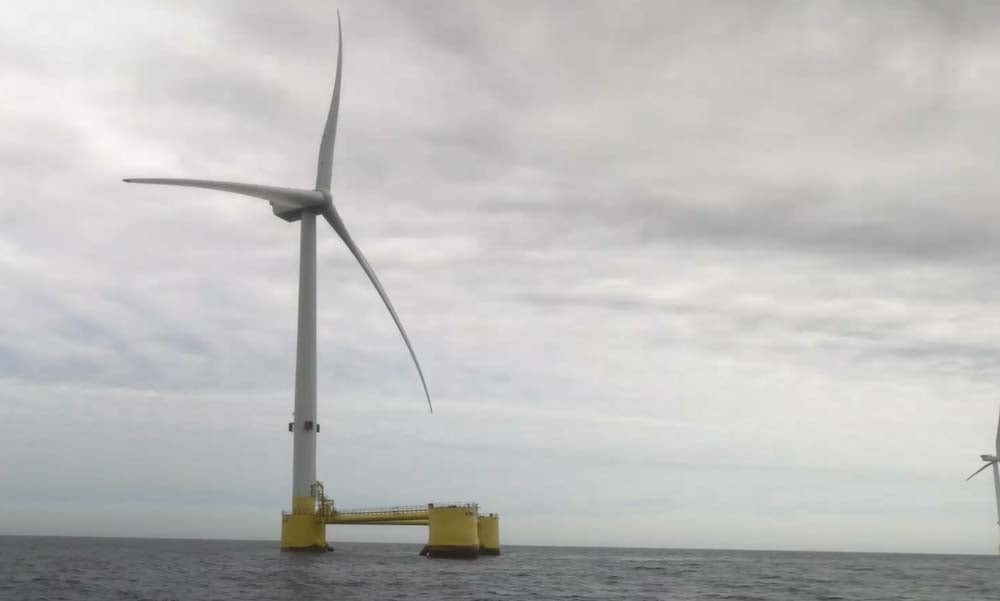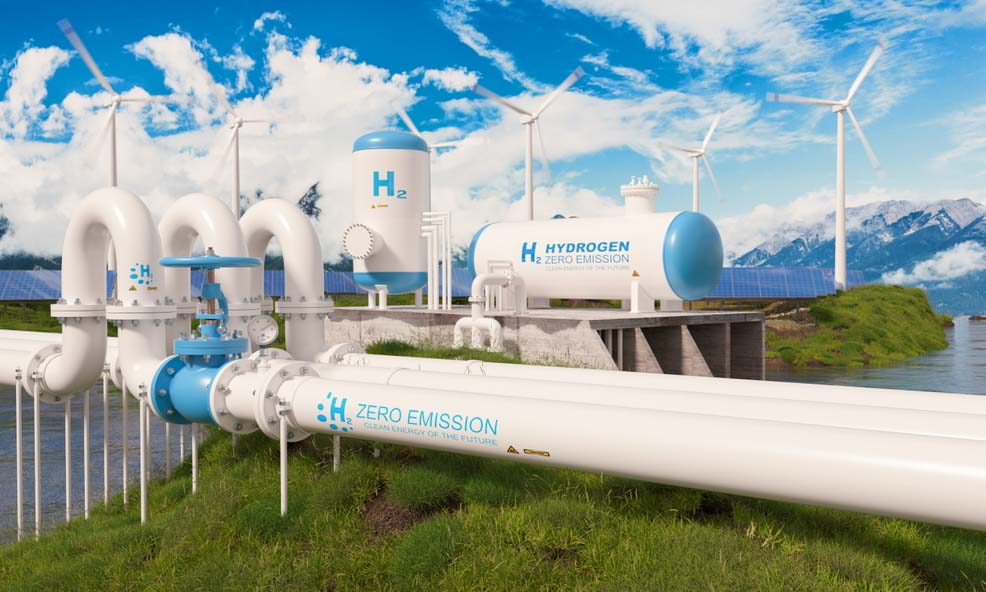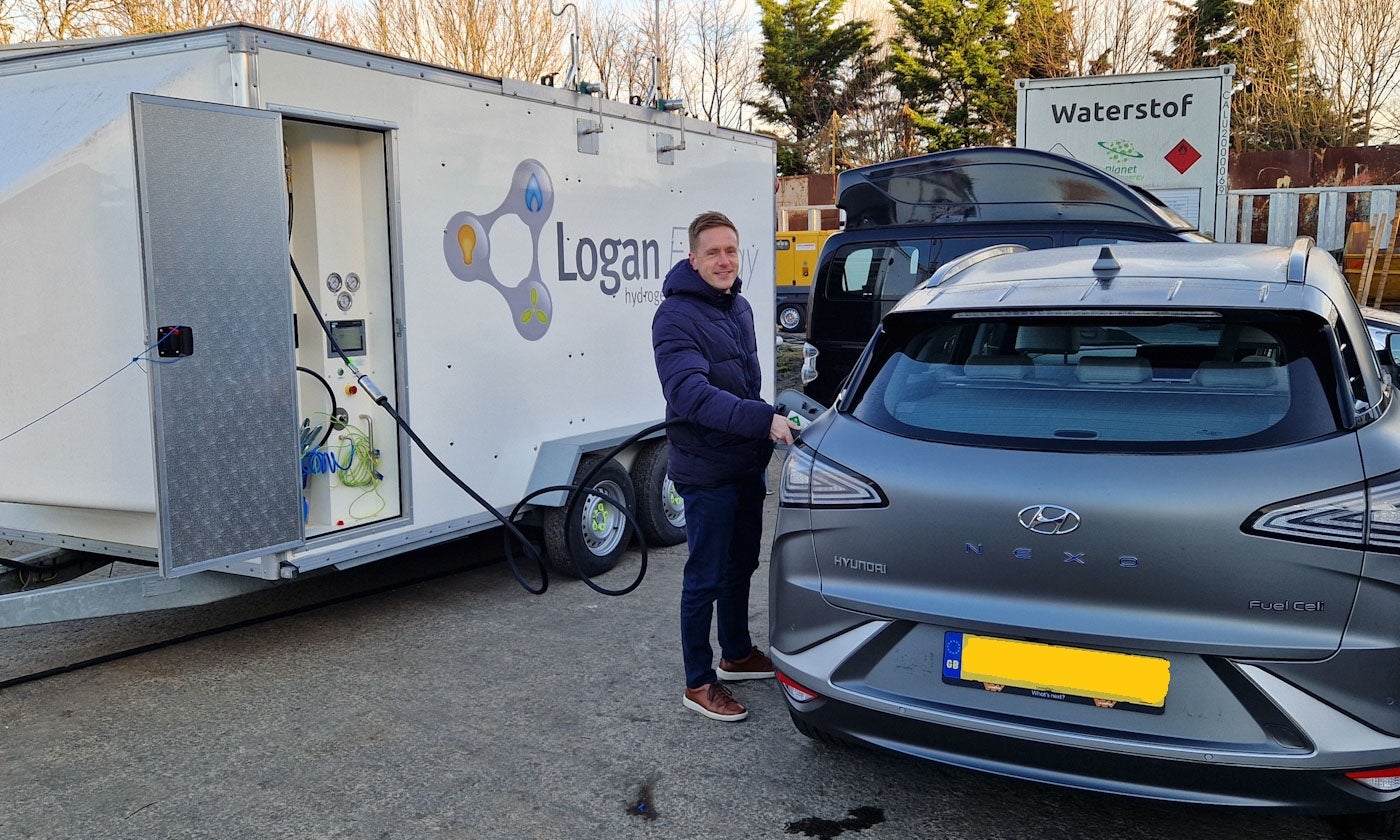
This year could be significant for progress in hydrogen as a proven low-carbon solution for the future energy mix, with a series of projects moving forward in Scotland.
Attention to hydrogen peaked in the aftermath of Russia’s invasion of Ukraine in 2022, which brought the issue of energy security to the top of the global agenda. With net zero targets edging closer, the hype around hydrogen led to governments and investors heavily backing early projects.
However, three years on, there is a sense that the early hype has cooled. In place of the hype is a more realistic and practical outlook. Hydrogen is increasingly viewed less as a cure-all solution to net zero and more as a highly effective option for specific industries that are hardest to decarbonise.
“The world needs to decarbonise,” says Craig Stewart, business development director of Edinburgh-based Logan Energy. “Hydrogen isn’t the complete solution – but is a crucial part of the solution.”
In Scotland, there has been significant progress in hydrogen. By 2030, the country has the ambition to have a production capacity of 5GW of low-carbon hydrogen, which will rise to 25GW by 2045. The country is also engaged in discussions with international partners about export potential. Key projects are moving ahead and challenges are being overcome.
The Scottish hydrogen projects and specialist companies
In the UK Government’s recent announcement of the second Hydrogen Allocation Round (HAR2), which focused on hydrogen production from renewables, Scottish projects accounted for almost a third of the shortlist – eight out of the 27. All projects will be closely scrutinised to determine value for money before any government funding is allocated.
“The recent HAR2 announcement is a promising signal of the sector’s momentum and reinforces Scotland’s leading role in the hydrogen economy,” adds Stewart. “Logan Energy stands ready with the skills and expertise to bring projects like these to life once final investment decisions are made.”
One notable project on the list is Phase 2 of the hydrogen production plan at the Whitelee Wind Farm near Glasgow, which is the largest onshore wind farm in the UK. Developer Scottish Power recently signed a contract with UK Government to support Phase 1 of the project through HAR1. Hydrogen will be produced by an electrolyser powered by some of the 215 wind turbines at the site, with a combined capacity of 550MW. After both phases are complete, the facility is intended to produce eight tonnes of green hydrogen a day.
A further step forward came in April this year when the project received planning permission for a 5.6km pipeline to provide water to the facility to split into its chemical elements to produce green hydrogen.
Alongside this, Scotland is home to a growing number of specialist hydrogen companies that focus on different aspects of the supply chain. Perhaps unusually for a relatively new industry such as hydrogen, Logan Energy already has more than two decades of sector experience. The Scottish company is focused on providing green hydrogen solutions for heavy transport, industry, grid balancing and energy storage.
“There’s an ecosystem developing in Scotland to support the growing hydrogen industry. At Logan, we design, supply, integrate, install and maintain hydrogen systems,” says Stewart.
Logan Energy is heavily involved with zero-emission hydrogen projects across Scotland and Europe, including refuelling stations, buses, construction vehicles, and distilleries.
The Scottish distilleries powered by hydrogen
Distilleries and spirits are among Scotland’s most famous industries, with exports worth billions of pounds a year. Yet traditional production processes have a large carbon footprint, with an estimated 3.7 terawatt-hours (TWh) of energy a year consumed by Scotland’s 148 distilleries.
Distilleries across Scotland are exploring the use of hydrogen as a replacement for natural gas. In the near future, bottles of Scotch whisky produced using hydrogen will likely be commercially available.
“They’re doing a lot of things to make one of the lowest carbon footprint whiskies,” says Stewart. “Whisky production using hydrogen is definitely gaining significant traction. The Scottish Government is putting money into it, as is the UK Government.”
Logan Energy is working with distilleries exploring hydrogen uses. One notable facility is Arbikie Distillery in Angus, 26 miles north of Dundee. While still in the development stages, the plan is to use energy from a nearby wind turbine to power an electrolyser that will split water into its chemical elements. The resulting hydrogen will be used to power whisky production.
Other distilleries in Scotland are exploring the use of hydrogen made at nearby facilities. The Cromarty Hydrogen Project, which like Whitlee phase 1 recently signed a contract with DESNZ for support through HAR 1, could supply several distilleries in the surrounding area. The 30MW wind farm would produce an estimated 20,000kg of renewable hydrogen a day. Larger in scale still is the 70MW Speyside Hydrogen project run by Storegga, which could supply hydrogen for powering processes at many distilleries in the area.
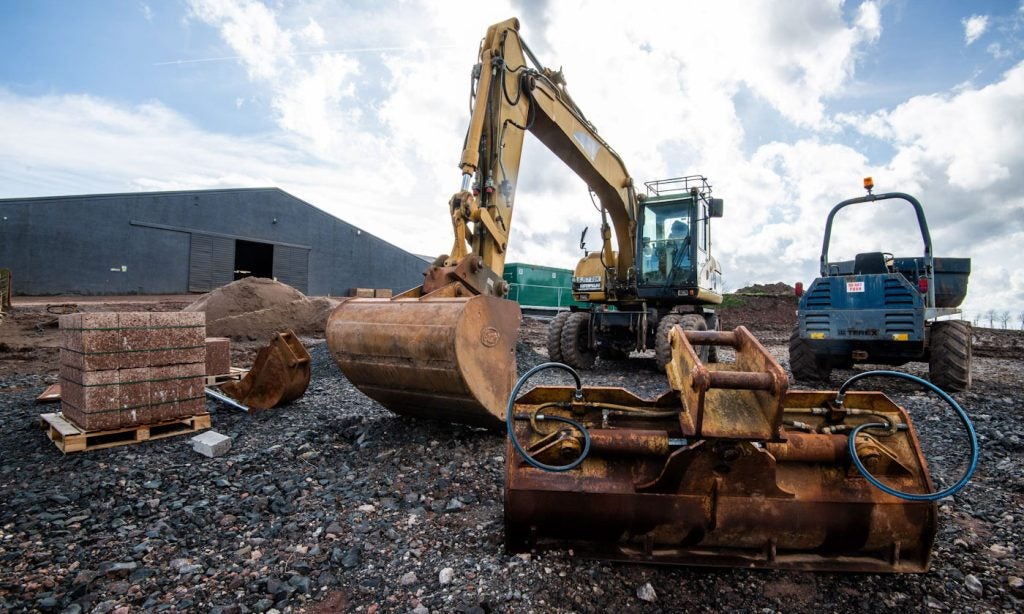
Reducing the carbon impact of shipping with green hydrogen
Shipping is a vital global industry but remains one of the heaviest carbon emitters worldwide. Projects are underway to decarbonise operations, with hydrogen also offering a solution.
Emissions from docked ships can majorly impact the air quality of nearby communities. A project at the Port of Leith could significantly contribute to this global goal, bringing together several smaller companies to decarbonise boats docked in the port. Logan Energy is involved with the Innovate UK-funded project, described as the world’s first green hydrogen shore power demonstrator.
“With our other Scottish project partners, we are taking wastewater from a nearby wastewater treatment site, converting it to hydrogen through an electrolyser, compressing it, storing and using it to fuel a hydrogen internal combustion engine creating clean electricity for shore power,” adds Stewart. “Previously, the power was provided by diesel generators, or the boat’s own engines while in port.”
Each company involved in the project offers a specialist area of expertise, including innovative wastewater treatment, hydrogen production, and port operations. “The innovation and expertise within these companies demonstrates the value of Scotland’s globally respected and ambitious universities,” says Stewart.
“There’s money available from the Scottish and UK governments, as well as a really rich set of companies and universities who collaborate in a way that you don’t see as much in other countries,” adds Stewart.
Hydrogen boilers to heat Scottish homes
A significant Scottish hydrogen project has started up this year and is a world-first. The H100 project in Fife will provide locally produced green hydrogen to up to 300 homes in place of natural gas.
The end-to-end green hydrogen project is being watched closely around the world and could provide a template for new-build housing stock located near renewable energy facilities. With an estimated 20% of UK emissions from residential buildings, decarbonising as much as possible is essential to reaching net zero goals.
At the Fife site operated by SGN, hydrogen gas will be produced by a nearby 7MW offshore wind turbine, which will power a 5MW electrolyser to split water into its chemical elements. The resulting green hydrogen will be transported to homes via a purpose-built 8.4km pipe network.
Homes will be fitted with cookers and boilers that run on hydrogen gas to use for cooking and heating. Two demonstrator homes at the site are now operational and running on delivered hydrogen. The two properties will be carefully monitored before the phased scale-up for the further 298 properties, which currently run on natural gas.
To equip engineers with the skills required to service hydrogen boilers and networks, SGN is collaborating with Fife College’s nearby Levenmouth campus to establish the first facility for hydrogen training in the UK. Trained Gas Safe engineers operating in the region will have an opportunity for training at the site to be able to service the H100 project and beyond.
Talent and expertise in the hydrogen industry
Scotland’s globally respected universities are integral to the development of industrial innovations across the country. Scottish universities offer crucial opportunities for companies to collaborate on projects, share facilities, and work alongside globally recognised experts in their field. Students regularly form start-ups and spinouts through projects in their courses.
Developing new companies in such an environment builds connections with the industry and reduces risk to provide a stronger foundation for growth.
Logan Energy has a base at Heriot-Watt University in Edinburgh and is actively engaged in projects with universities across Scotland, including the University of Strathclyde, the University of St Andrews, and the University of Edinburgh.
“We have access to experts at the forefront of hydrogen research and development, which helps to drive some of our innovations. It gives us an edge,” adds Stewart. “And it allows us to quickly capitalise on new developments.”
Amid a global talent shortage, another crucial advantage of the universities in Scotland is the thousands of new STEM graduates every year. This offers a highly educated talent pool for companies seeking technical knowledge. Alongside the development of new talent is the existing expertise available in Scotland’s North Sea energy industry.
“We’re quite a small company, but we’re growing rapidly. We’ve got just over 40 employees but a number of them have come from an oil & gas background,” says Stewart. “There’s a shortage of engineers across the UK, but Scotland doesn’t suffer quite as badly because we have great universities that are giving us graduates, and also a talent pool from the traditional more carbon-emitting industries who are transitioning over into the greener industry space.”
This combination of academia, industry, and government in Scotland is focused on developing the necessary technologies and capabilities to fulfil the potential of hydrogen in the net zero economy.
To learn more about how Scotland is developing its hydrogen export opportunities, sign up for the webinar below.

